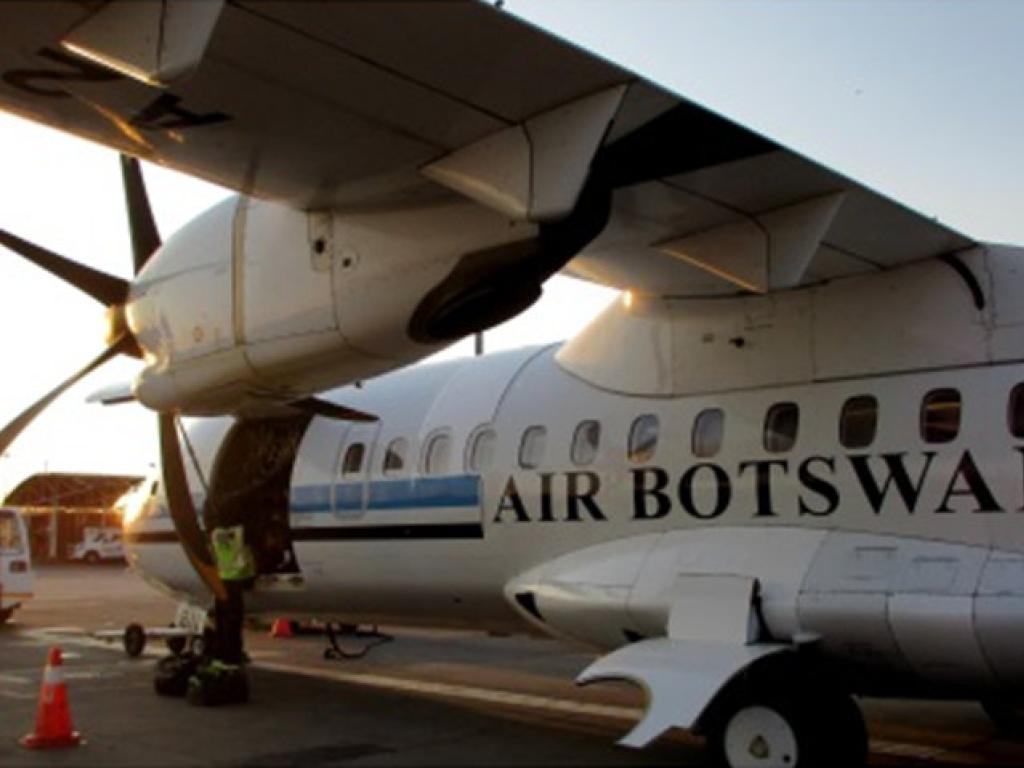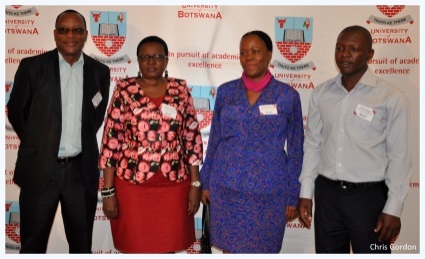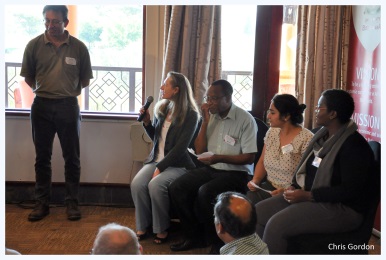ASSAR Takes Large Steps Forward at Second Annual Meeting

In late May 2015, approximately half of the ASSAR team met in Botswana for a week of intensive, fruitful and lively discussion. Fortuitously timed, this second annual meeting came at the end of ASSAR’s first phase – the Regional Diagnostic Studies (RDS) – during which we used literature reviews and early stakeholder engagement to develop baseline knowledge of the local contexts of our semi-arid focus countries (Botswana, Ethiopia, Ghana, India, Kenya, Mali, Namibia, and Uganda).

The meeting gave us a chance to collectively reflect on the main RDS findings and to strategize the way forward for our RDS syntheses. The RDS clearly highlighted just how dynamic semi-arid landscapes are – both in space and time – as exemplified by agro-intensification in west Africa, variable access to land and water in east and southern Africa, and changing land-use and land-cover patterns in India.
We also used the RDS findings to guide the research design and research-into-use (RiU) strategies for ASSAR’s next phase – the Regional Research Programmes (RRP). Four overarching themes emerged that offer cross-regionally relevant, insightful and comparative research questions. These are: governance; social differentiation; knowledge systems; and ecosystem services. By using a common framework to explore these themes across all of our study areas, ASSAR aims to generate a thorough understanding of the factors driving vulnerability, the social, spatial and temporal dynamics of vulnerability, and the ways that vulnerability can be reduced.

Following on from the recent CARIAA learning event in Nairobi that focussed on RiU, we spent a great deal of our meeting thinking about how to make ASSAR’s work relevant and impactful. We played some ‘serious games’ and trialled exciting new experiential learning activities. We hosted a stakeholder engagement event, where we encouraged a range of Botswanan policy makers and practitioners to share their challenges and research needs with us. Lastly, a field trip to the failing Gaborone Dam, and the water and power restrictions evident around us, allowed us to experience the reality of Botswana’s water shortages, and gave us a chance to consider the appropriateness and feasibility of different adaptation options.
Finally, with the welcome and hospitality we received from our University of Botswana hosts, this meeting gave us a chance to connect with each other as human beings, rather than as Google-bots. With so few opportunities to meet each other face to face, these meetings are fundamental in helping us to develop the networks and relationships that underpin effective collaboration and project success.
While it’s clear that ASSAR has a long way to go to achieve the impact that we hope to see, we are confident that with the progress we made in this meeting, we are at least setting off on the right road.